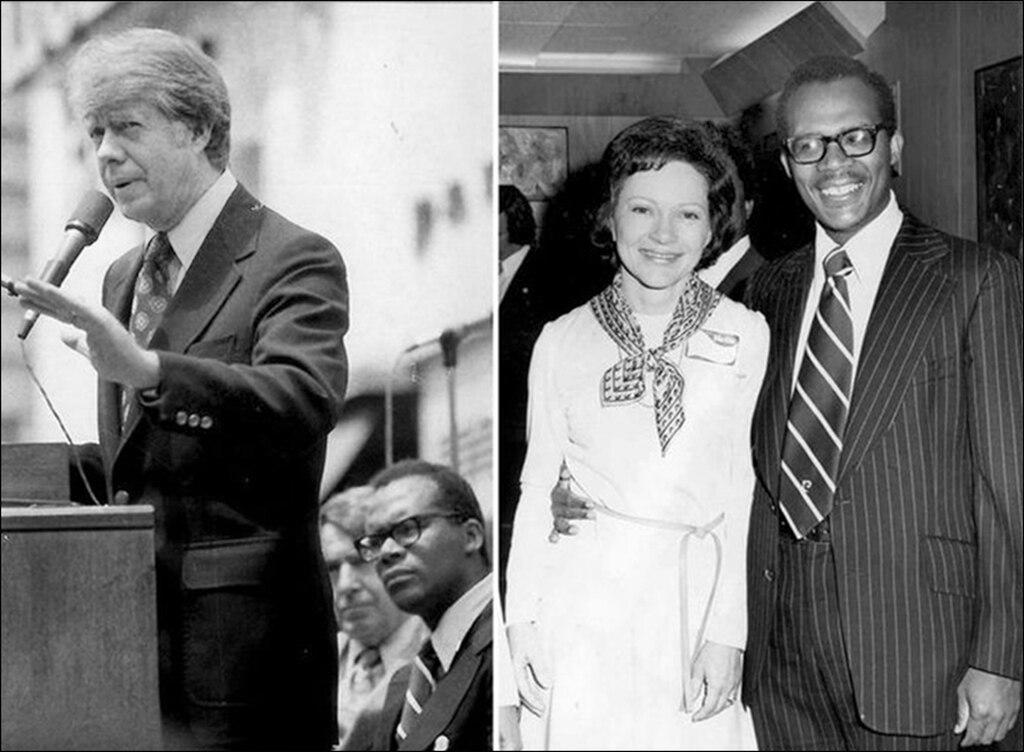I have admired Jimmy Carter for 48 years.
We first met in 1976, when I introduced Carter at a political rally downtown on West Lexington Street. It was his first campaign event in Baltimore as a presidential candidate and my first significant involvement in a national election.
I later served in the Carter administration as associate deputy attorney general and as director of the National Economic Crimes Project.
Many of President Carter’s accomplishments continue to benefit the nation. The U.S. Department of Education, which he created, serves schoolchildren in every state. He raised national understanding of the threat of climate change and the need to focus on renewable sources of energy. This led him to establish the U.S. Department of Energy.
The Baltimore Banner thanks its sponsors. Become one.

Having received in his presidential election the support of 83% of Black voters, Carter’s Cabinet and administration increased racial and gender diversity to record levels. I particularly remember his appointments of Andrew Young as U.N. ambassador and Howard University Law School Dean Patricia Roberts Harris to lead the Department of Housing and Urban Development, and later to lead what was then the Department of Health, Education and Welfare.
President Carter’s international achievements benefited the world. The major nuclear arms reduction treaty he signed with Soviet leader Leonid Brezhnev ended most nuclear testing. He was the first U.S. president to visit sub-Saharan Africa and to focus on its special needs. He brought Menachem Begin and Anwar Sadat, the leaders of Israel and Egypt, to Camp David, and brokered an end to the war between their nations.
Notwithstanding these and many other domestic and international accomplishments, Carter’s administration was mortally wounded by the Iran Hostage Crisis. In 1979, a group of Iranian students took over the U.S. Embassy in Tehran and held 52 American diplomats and citizens for the last 400 days of Carter’s administration. This led to a landslide victory for Ronald Reagan, with Maryland being one of only five states Carter carried.
Jimmy Carter’s post-presidency has been truly extraordinary. He focused on three main undertakings: promoting fair elections and democracy around the world, building homes for the poor and eradicating diseases that kill millions of people in Africa and Asia.
He founded the Carter Center, a nongovernmental nonprofit organization that has raised and spent more than $500 million advancing human rights and democracy around the world. The center has monitored elections in more than 100 countries. In 2002, Carter, quite justifiably, was awarded the Nobel Peace Prize.
The Baltimore Banner thanks its sponsors. Become one.
I witnessed firsthand the Carter Center’s work in Liberia, as the United Nations returned civilian government to that country with a 2005 election in which Ellen Johnson Sirleaf became the first female head of state in Africa.
Habitat for Humanity, with Carter’s financial support and personal participation that included hands-on carpentry, has built and repaired houses for poor people in 14 countries. In 2019, Carter was so dedicated to this work that he showed up for the job with 14 stitches and a black eye, after having taken a bad fall.
Jimmy Carter’s most enduring worldwide legacy might be his determined efforts to end the scourge of Guinea worm infections in Africa and in other parts of the world. Carter organized, funded, and led a Global Guinea Worm Eradication Program that waged a multifaceted battle against this painful parasitic disease that is spread by contaminated water and inadequately cooked food.
Jimmy Carter frequently said, “I would like to see the last Guinea worm die before I do.” He might have succeeded. Recorded Guinea worm infections went down dramatically worldwide, from 3.5 million in 1986, to 600,000 in 1990 and 75,000 in 2000. In 2023, only 14 cases of human Guinea worm infections were reported in the world.
Jimmy Carter was a great American who lived a humble life dedicated to public service and helping those most in need. He made the world a better place and he taught us all what it means to be a true humanitarian. I consider it a special honor to have known him.
Larry S. Gibson is the Morton & Sophia Macht professor of law at the University of Maryland Francis King Cary School of Law.



Comments
Welcome to The Banner's subscriber-only commenting community. Please review our community guidelines.